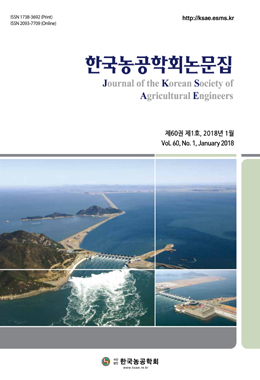Transportation and storage technologies, which are key drivers for trade, has increased global trade of agricultural products about 165% from 1995 to 2015. Korea imports 76.2% of grain from major food exporters such as USA, Australia, Brazil, and China. The expected long shipping distances from these countries can seriously cause environmental impacts on various environmental categories such as climate change, particulate matter, and acidification. The goal of this study is to assess the environmental implications focused on greenhouse gases (GHGs) and particulate matters (PMs) emissions of imported grains (wheat, corn, and bean) using food miles analysis and life cycle assessment (LCA). The environmental impacts of imported crops are estimated by transportation modes using the national LCI database provided by Korea Environmental Industry & Technology Institute (KEITI). The results of this study are as follows; (1) Imported wheat comes from USA (29%), AUS (27%), and URK (20%), corn is imported from USA (34%), BRA (29%), and URK (16%), and bean comes from BRA (57%), USA (40%), and CHN (2%); (2) the food miles of imported crops (wheat, corn, and bean) are 3.62E+10, 1.30E+11, and 2.20E+10 ton·km, respectively; (3) the potential GHGs and PMs of wheat, corn, and bean are 5.02E+08, 1.67E+09, and 2.84E+08 kg CO2e and 5.89E+05, 1.83E+06, 3.07E+05 kg PM10e, respectively. The outputs of this study could provide environmental impacts and carrying distances of imported agricultural products for preparing a plan to reduce environmental impacts.


